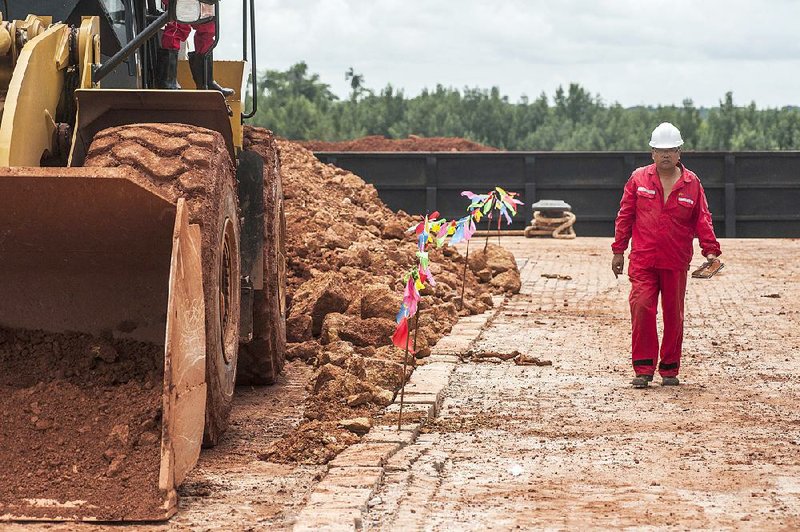HARARE, Zimbabwe -- Some immigration signs at Zimbabwe's main international airport are in Chinese, a sign of China's deep economic inroads in Africa, which Chinese President Xi Jinping will visit this week.
Xi is scheduled to arrive today in Zimbabwe before heading on Wednesday to South Africa. There, he will attend a forum on cooperation between Africa and China, whose investment on the continent has soared in the past decade. Zimbabwe, whose economy is faltering, would like to get a bigger piece of it.
China's overall trade with Africa topped $200 billion last year but has slowed over the past two years as the weakening Chinese economy demands less of the continent's raw materials, including oil and copper.
Chinese-built roads, bridges and power installations are found across Africa, often paid for in resources or through loans from China that must eventually be repaid.
Along with those looming debts, some African nations have expressed anger over Chinese companies' use of Chinese workers and other practices that fail to benefit local economies.
Inexpensive Chinese goods have long been popular in Africa, and in the last decade Chinese merchants have started eliminating the middle man and setting up retail outlets of their own, much to local merchants' chagrin. In 2011, riots in the Ugandan capital of Kampala largely targeted the city's foreign merchants.
There are about a million Chinese living in Africa, mostly engaged in commercial work, according to the Chinese General Chamber of Commerce in Africa.
Xi's visit to Zimbabwe is his first and he'll meet President Robert Mugabe, who has been quoted by Zimbabwean state media as saying they will discuss "some of the projects and programs we want China to assist us in undertaking."
Despite the collaboration, Mugabe has expressed concern in the past, telling the Chinese in 2012 to respect Zimbabwe's investment and labor laws.
"To our Chinese friends we say, 'You don't just come, you have to respect our rules," the Zimbabwean leader said at a gathering of the ruling party.
China pumped $600 million into Zimbabwe in 2013, making it the biggest foreign investor with interests ranging from gold, diamond and platinum mining to tobacco, nickel, chrome, construction, energy and telecommunications, said Chinese ambassador Huang Ping.
Zimbabwe's economy is battered by mass company closures, high unemployment, low liquidity and foreign direct investment and food shortages. The government has been struggling to raise money to pay its workers, often shifting pay dates. Over two-thirds of Zimbabweans survive on informal trade, according to the African Development Bank.
Xi travels to South Africa where he will be from Wednesday through Saturday on his second state visit to that country. In addition to the China and Africa forum, security will also be on his agenda. Three Chinese were among 20 people killed in an Islamic extremist assault on a hotel in Mali last week.
Chinese officials have said they are holding discussions with Djibouti on setting up a naval logistics center in the Horn of Africa nation to service Chinese anti-piracy patrols in the Gulf of Aden and other regional missions. It hopes the center could ease difficulties in refueling and replenishing Chinese navy ships and provide recreation for officers and sailors.
Like India, China has looked to African states to bolster its profile. South Africa has been especially supportive on the political front, twice barring entry to the Dalai Lama, a Nobel Peace Prize winner who is derided by China as an advocate for Tibetan independence from Chinese rule.
Information for this article was contributed by Christopher Bodeen of The Associated Press.
Business on 12/01/2015
